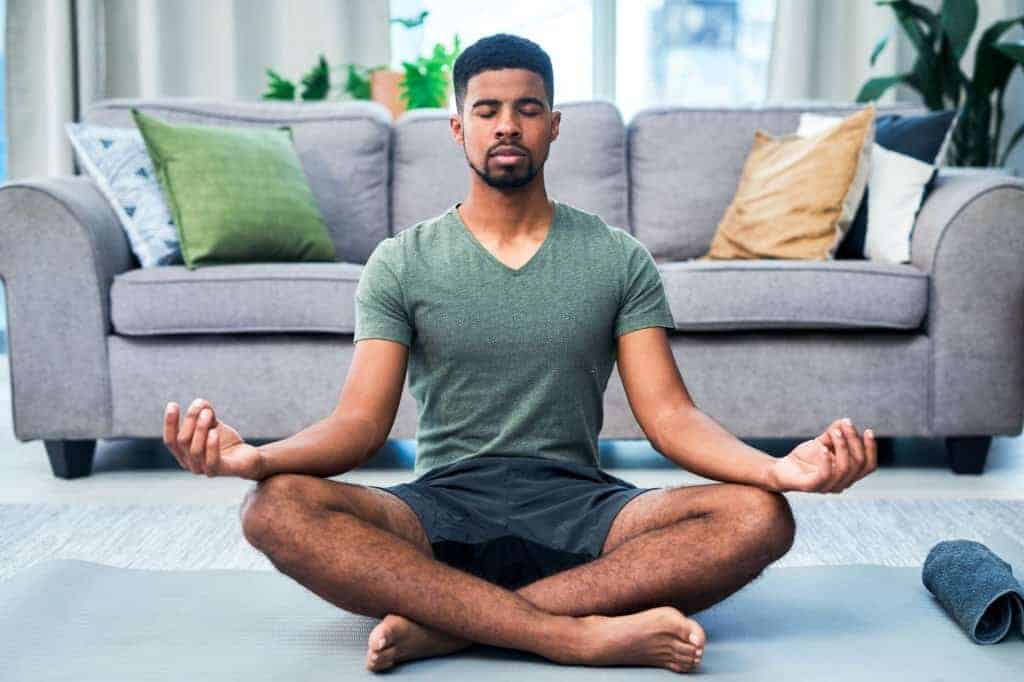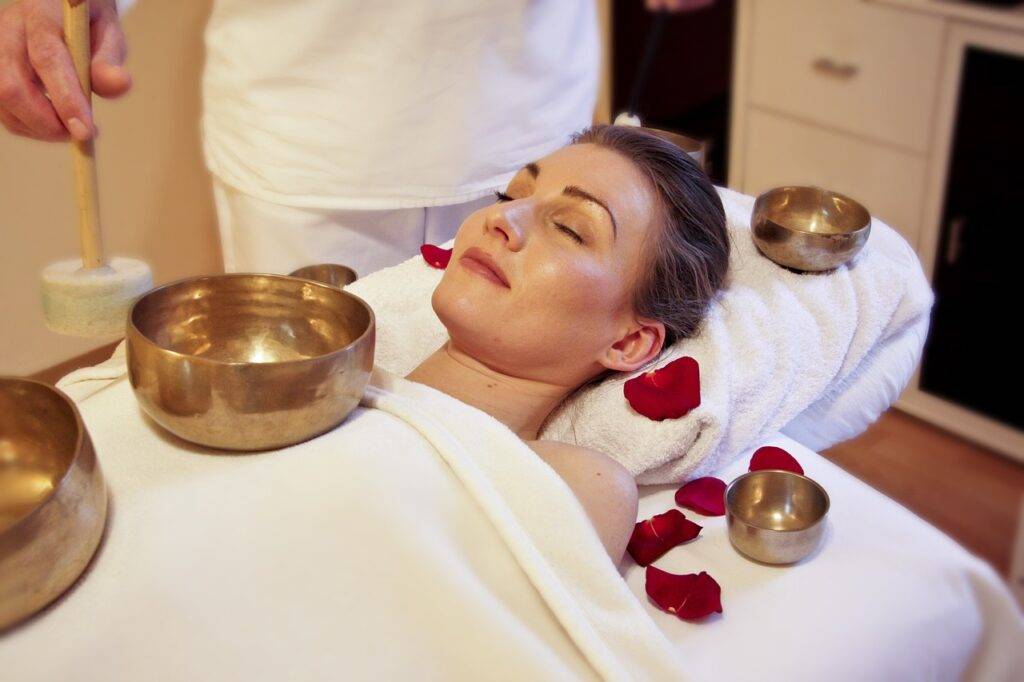Healing Meditation: Benefits, How to start?
What are the advantages of Healing Meditation and how can I get started? - All Perfect Health

Healing meditation is a powerful tool for self-care and personal growth. It can help us to become more aware of our thoughts, feelings, and physical sensations, allowing us to better understand ourselves and the world around us.
To get started with healing meditation, it’s important to first sit in a comfortable position and allow yourself to be present in the moment.
This means letting go of any expectations or judgments you may have about what should happen during your session. Instead, focus on simply being with whatever arises in your body and mind without trying to change it or push it away.
Once you are settled into the present moment, take some time to observe your breath as it moves through your body. Notice how each inhalation brings fresh energy into your system while each exhalation helps you let go of anything that no longer serves you.
As you continue to breathe deeply, allow yourself to soften into the experience and open up to whatever comes up for you—whether it’s emotions, memories, or physical sensations. By doing this work from a place of non-judgmental awareness, you will begin to heal yourself from within.

What Is Healing Meditation?
Meditation is a powerful tool for finding inner connection and stillness. It allows us to slow down and receive, allowing our bodies to repair themselves naturally and our minds to find clarity, peace, and stillness.
Through intentional awareness and breath, we can create a space of solace in an otherwise loud world. This practice has been used for centuries as a way to reduce stress, improve focus, increase creativity, and even heal physical ailments.
The benefits of meditation are vast and varied. It can help us become more mindful of our thoughts and feelings, allowing us to better manage stress levels while improving overall mental health.
Meditation can also help us become more aware of our body’s needs, leading to improved physical health as well as increased energy levels. Finally, it can be used as a form of self-care that helps us relax and recharge after a long day or week. With regular practice, meditation can be an invaluable tool for living a healthier life both mentally and physically.
What are the Benefits of Meditation?
Meditation is an ancient practice that has been used for centuries to promote physical and mental well-being. It has been shown to have numerous healing benefits, including reducing stress levels.
Stress can have a negative impact on our health, leading to fatigue, insomnia, headaches, and other physical ailments. Through regular meditation, we can counteract the impact of stress by quieting the mind and increasing our body’s relaxation response.
When we meditate, we focus on our breath and allow ourselves to become more aware of our thoughts and feelings without judgment or attachment.
This helps us to become more mindful of our emotions and reactions in stressful situations. As we practice this regularly, it becomes easier to recognize when we are feeling overwhelmed or stressed out so that we can take steps to reduce it before it gets out of control.
Additionally, meditation can help us develop healthier coping mechanisms for dealing with difficult emotions such as anger or sadness. By taking time each day to meditate, we can learn how to better manage our stress levels and create a sense of inner peace and balance in our lives.
Below are a few of the many advantages of meditation.
1. Reduces stress

Meditation is a popular practice for reducing stress and improving overall well-being. Research has shown that meditation can help reduce the levels of cortisol, the stress hormone, in the body.
This helps to reduce many of the harmful effects of stress such as depression, anxiety, fatigue and cloudy thinking. One study even found that mindfulness meditation was able to reduce the inflammation response caused by stress.
The practice of meditation can be used as an effective tool for managing stress and improving mental health. It can help to relax both the mind and body, allowing us to take a step back from our stressful lives and focus on ourselves.
Regular practice of meditation can lead to long-term changes in our mental state, helping us to better cope with stressful situations in our daily lives.
2. Promotes emotional health
Meditation has been shown to have a positive effect on emotional health. Studies have found that mindfulness meditation can reduce symptoms of depression, and people who practice it experience fewer negative thoughts in response to viewing negative images.
Meditation may reduce depression by decreasing levels of inflammatory chemicals called cytokines, which are released in response to stress.
The benefits of meditation extend beyond just reducing depression symptoms. It can also lead to improved self-image and a more positive outlook on life. This is likely due to the fact that meditation encourages mindful awareness and acceptance of one’s emotions, allowing for greater emotional regulation and resilience.
Regular practice can help cultivate an attitude of gratitude and appreciation for life’s blessings, leading to increased feelings of joy and contentment.
3. Controls Anxiety
Meditation is a powerful tool for reducing anxiety. A meta-analysis of nearly 1,300 adults found that meditation can reduce anxiety levels, especially in those with the highest levels of anxiety.
One study found that 8 weeks of mindfulness meditation helped reduce symptoms of generalized anxiety disorder, along with increasing positive self-statements and improving stress reactivity and coping.
Another study in 47 people with chronic pain showed that completing an 8-week meditation program led to significant improvements in depression, anxiety, and pain over the course of one year.
Research suggests that various mindfulness and meditation exercises may be effective in reducing overall anxiety levels. This could include activities such as yoga or tai chi, which have been shown to help relax the body and mind while also providing physical benefits.
Additionally, guided imagery or progressive muscle relaxation can be used to help focus on calming thoughts and sensations throughout the body. With regular practice, these techniques can help reduce feelings of anxiousness and promote a sense of peace and well-being.
4. May reduce age-related memory loss
Meditation has been shown to be an effective way to reduce age-related memory loss. Kirtan Kriya is a type of meditation that combines chanting with finger movements, and studies have found it can improve performance on neuropsychological tests in people with age-related memory loss.
A review of multiple meditation styles found they can increase attention, memory, and mental quickness in older volunteers.
Meditation can not only help slow age-related memory decline, it has even been known to improve memory in individuals suffering from dementia.
Additionally, stress relief techniques used while caring for loved ones with dementia are greatly enhanced through regular meditation. Therefore, incorporating regular meditation into your daily routine may be beneficial for reducing age-related memory loss and improving overall cognitive health.
5. Enhances self-awareness
Meditation is a powerful tool for enhancing self-awareness. It can help you become more aware of your thoughts, feelings, and behaviours, allowing you to make better decisions and take more constructive actions.
Self-inquiry meditation is a form of meditation that focuses on helping you gain insight into yourself and how you relate to those around you.
Through this practice, you can learn to recognize patterns of thought that may be harmful or self-defeating, and then steer them towards more constructive patterns.
Tai chi is another form of meditation that has been linked to improved self-efficacy. A review of 27 studies showed that practising tai chi was associated with increased confidence in one’s ability to overcome challenges.
A study involving 153 adults who used a mindfulness meditation app for two weeks found that they experienced reduced feelings of loneliness and increased social contact compared with those in the control group. These findings suggest that regular practice of meditation can lead to greater self-awareness and improved mental health outcomes.
What Are the Steps to Begin Meditating?

There are many ways to get started with a healing meditation. Here are a few suggestions:
- Locate a peaceful space to sit or rest. You can use pillows or a yoga mat for extra comfort.
- Close your eyes and concentrate on your breathing. Take a deep breath in through your nose and exhale slowly out of your mouth.
- When you’re ready, concentrate on parts of your body that are tight or stressed. Breathe deeply and let those muscles relax.
- Take time to relax and focus on a mantra or visualization that brings you peace.
- Take your time here, and when you’re ready, calmly return to reality and open your eyes.
Also, read this article: 10 Natural Herbs To Get Rid Of Headaches
What is the recommended frequency for practising healing meditation?
It’s truly subjective when determining how many times to do healing meditation. Some find it beneficial for their well-being to undertake it daily, whereas others prefer just one session a week. Do whatever resonates best with you, but be sure to make it a consistent practice so that you can enjoy its benefits.
If you’re seeking a relatively easy manner of lessening stress and anxiety, why not attempt healing meditation? This ancient practice has improved the mental and physical well-being of many individuals. It can be practised in any location, requiring merely several minutes every day. Why don’t you give it a shot?
What is sound meditation?

Sound healing yoga is an interesting kind of sound treatment that utilizes Tibetan chime dishes, tuning forks, and other harmonic tools to adjust the body’s energy field. This balances your mental condition and physical health, prompting better social health all in all. Through sound vibration, sound healing practice gives you the ability to restore and energize. It can be a great way to diminish stress and nervousness, improve rest quality, and help with focus.
Sound healing meditation is an ancient practice from India and Tibet, used to bring balance and harmony to the mind and body. People today are becoming aware of its advantages, as it allows for a deeper connection with nature.
Is my healing making progress?
Different people may experience different effects after a healing meditation session. To understand how it is benefitting you, it is important to pay attention to how you feel both during and after the session.
If you find that your stress levels have decreased, your focus has improved, or your mood has become more positive, then it is likely that the healing meditation is having a positive effect on you.
Is healing meditation open to everyone?
With training and dedication, anyone can learn meditation for healing. It doesn’t require much time to master and can be done in the comfort of your own home. All you need is a quiet space and a comfortable position. It is important to remember that healing meditation is not a one-size-fits-all solution and may not work for everyone. If you are unsure, it is best to consult with a professional before beginning any kind of healing practice.
Conclusion
Seeking to re-establish balance and accord within the body, brain, and spirit, healing meditation is used to free jammed energy, allay stress and angst, foster relaxation and upgrade overall health. This practice has been utilized for thousands of years to address physical and mental medical issues.
If you’re looking for a convenient way to decrease stress and anxiety, why not give healing meditation a try? This ancient way has improved many people’s mental and physical wellness. Comprising of harmonic utensils like Tibetan singing bowls, tuning forks, etc., Sound healing meditation forms part of sound therapy which realigns the body’s energy field.
Meditation References
Also, one study found that 8 weeks of mindfulness meditation helped reduce anxiety symptoms in people with generalized anxiety disorder, along with increasing positive self-statements and improving stress reactivity and coping
External Link: https://www.ncbi.nlm.nih.gov/pmc/articles/PMC3772979/
A similar study showed that people who regularly practised meditation performed better on a visual task and had a greater attention span than those without any meditation experience
External Link: https://www.ncbi.nlm.nih.gov/pmc/articles/PMC5962705/
So, how does it work? During a sound healing session, also known as a sound bath, you’ll typically lie down on the floor or a yoga mat, perhaps cuddle up with a cozy blanket, and simply listen up as a practitioner plays a variety of instruments and you “bathe” in the soothing sounds and vibrations. Roxie Sarhangi, a certified sound healing practitioner based in Los Angeles, describes it as a “meditative acoustic sound concert.” The sound frequencies then slow down brain waves to a deeply restorative state, which activates the body’s system of self-healing.
External Link: https://www.ncbi.nlm.nih.gov/pmc/articles/PMC5871151/
Furthermore, research has shown that meditation may also improve symptoms of stress-related conditions, including irritable bowel syndrome, post-traumatic stress disorder, and fibromyalgia
External Link: https://pubmed.ncbi.nlm.nih.gov/27537781/
Meditation may also help control job-related anxiety. One study found that employees who used a mindfulness meditation app for 8 weeks experienced improved feelings of well-being and decreased distress and job strain, compared with those in a control group
External Link: https://pubmed.ncbi.nlm.nih.gov/29723001/
*** More great articles that may be of interest to you 🙂
If you want to learn more information about healing meditation,, You can read this article: 10-Minute Meditation For Healing
